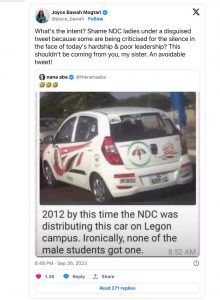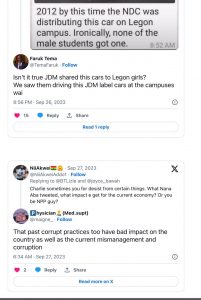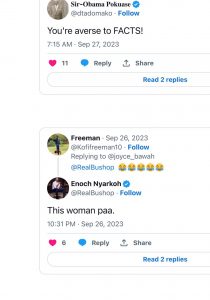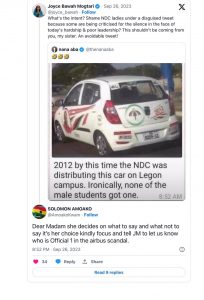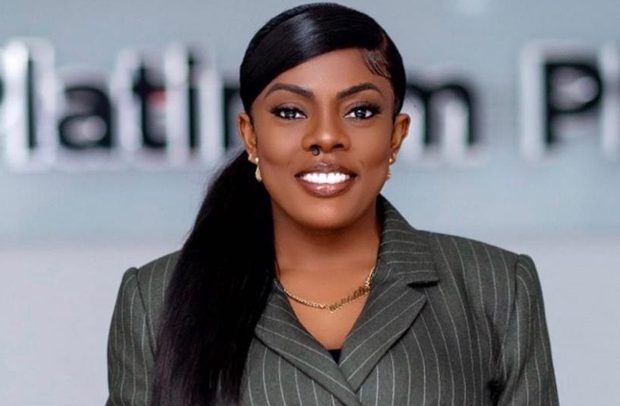Social media has erupted in a spirited defense of renowned broadcaster, Nana Aba Anamoah following criticism by Joyce Bawah Mogtari, a former Deputy Minister of Transport and special aide to former President John Dramani Mahama.
The clash of opinions unfolded on Twitter, with users passionately taking sides in the ongoing debate.
The dispute was ignited by a tweet from Nana Aba Anamoah, in which she highlighted the National Democratic Congress’s activities during the lead-up to the 2012 general elections. Her tweet featured an image of a poster that read, “In 2012, by this time, the NDC was distributing this car on the Legon campus. Ironically, none of the male students got one.”
Joyce Bawah Mogtari took issue with the tweet and questioned Nana Aba’s motive for sharing such content.
She wrote, “What’s the intent? Shame NDC ladies under a disguised tweet because some are being criticized for their silence in the face of today’s hardship & poor leadership? This shouldn’t be coming from you, my sister. An avoidable tweet!”
The exchange quickly caught the attention of Ghanaians on social media, with many defending Nana Aba Anamoah’s right to express her thoughts and opinions freely. Some argued that political figures often criticize others when their parties are facing scrutiny, suggesting that it’s a common practice in the political landscape.
Twitter users who responded to Joyce Bawah’s criticism expressed the view that Nana Aba’s tweet was harmless and well within her rights as a public figure to voice her perspective. They emphasized the importance of open dialogue and differing viewpoints in a democratic society.
In a twist to the debate, a user with the handle @FellowPatriot_ dug up a 2020 tweet from Joyce Bawah Mogtari in which she had questioned whether the Akufo-Addo government was distributing cars and V8s to key stakeholders. This resurfaced tweet added another layer to the discussion, with some pointing out the apparent double standards in political discourse.
The clash between Nana Aba Anamoah and Joyce Bawah Mogtari reflects the vibrant and often contentious nature of political and social discussions on social media platforms in Ghana. It also underscores the importance of free expression and the diverse range of perspectives that contribute to public discourse in the digital age.
